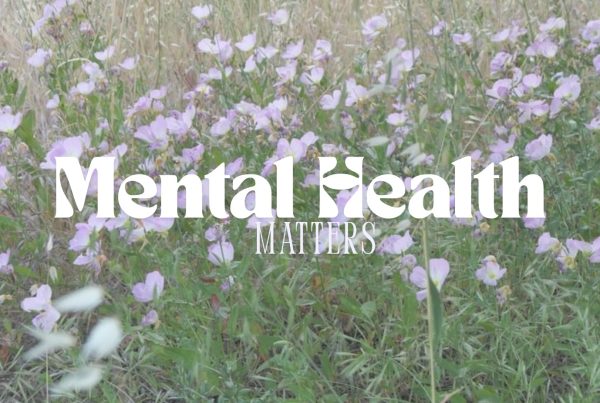You Cannot Stop Kero Kero Bonito
Examining the discography of trio Kero Kero Bonito as depart from their Civilisation era
London’s experimental pop trio Kero Kero Bonito (KKB) recently released a compilation of EPs, Civilisation I and Civilisations II, under the album Civilisations. Civilisations, an album filled with synth-pop vocals that reminisces of humanity and religious iconography, creating new-age music with old instruments, marks a new age of KKB as they step out of the shell from the former albums Time ‘n’ Place and Bonito Generation.
You might have heard of KKB already from their YouTube hit single “Flamingo” and their TikTok-famous song “I’d Rather Sleep” from their mixtape album Intro Bonito. Although they have gained mass notoriety from these two songs, they are far from a one/two-hit wonder band. KKB continues to show the possibilities of the ever-evolving nature of music and the philosophy of changing even if it is different from what made them popular in the first place.
The trio is comprised of lead singer Sarah Midori Perry (Sarah Bonito) and producers Douglas Augustus Lobban (Gus Bonito) and Jamie Lee Bulled (THE JLB). KKB was created by childhood friends Gus and Jamie who each have their own respective music careers outside of KKB.
Gus is known outside as Augustus, Steve Nosurname, and Kane West. Kane West was one of the first artists signed onto Alexander Guy Cook (A. G. Cook)’s label PC Music. Although he has divested most of his time into KKB, and his association with PC Music now is quite unknown. Once in a while he will drop a song like “GOD BREATHED ACID” with the typical Kane West beat and flair. The other producer, Jamie, records solo as THE JLB and previously as WHARFWHIT makes entire songs around captured vocal samples or from a TV segment like “Sweating but Sparkling” or “Sunroofer.”
After creating their first EP Why Aren’t You Dancing and dabbling around with a Japanese Producer and Created Synthpop with a Chillwave EP. Gus and Jamie decided to post on a music forum for an additional band member who could sing and help write in Japanese.
As noted in the song “Big City” from Bonito Generation. Sarah, who moved to the UK from Japan when she was 13 and is fluent in both Japanese and English, decided to give it a try and joined the band soon after. This marked a complete tonal shift of the first EP as Sarah was KKB’s new image and artistic lead. Helping the creation of the J-Pop-inspired mixtape Intro Bonito, and their first album Bonito Generation. In fact, all of the visuals of KKB was done by her up until the release of their album Bonito Generation.
The release of their first album, Bonito Generation, came out 5 years ago almost to the day. This release sparked heavy interest in the band, as it was a breath of fresh air for listeners with its simple on the surface J-Pop inspired beats with a deep tonal and lyrical underbelly spanning the entire album. With samples originating from video game beats and earworm-inducing synth chops, KKB’s Bonito Generation was elevated to cult classic status and still talked about to this day.
8 months before their second album, KKB dropped a sample of what they were working on. The EP TOTEP or The One True EP was a taste of the new direction they were now heading in. Gone were the J-Pop-inspired artistic vision but the dark and moody reflection of British rock. Although this was a big departure from their roots it was done with great reception as the creativity of songs like “Only Acting” and “Cinema” showed that while KKB sounded different now, it is still inspired and created with the same passion as before.
Their second album, Time ‘n’ Place came out 2 years later in 2018 with a distinctively new vibe aligning itself with TOTEP and departure from Bonito Generation. Judging from the cover alone you could tell it was vastly different from Bonito Generation and that infamous Bonito sound but incorporated much more sounds inspired by British pop-rock music and vocals. The songwriting process during those 2 years between albums began to shift as Sarah got more involved with the lyrical side. Sarah had started experiencing recurring dreams and visions about her childhood in Japan. These visions, combined with the heartbreak of her pet budgie who has been with her since she moved from Japan, and the demolition of her childhood home in Hokkaido. Lead her to pursue a much dreamier and darker sound signature in songs like “Make Believe” and “Dear Future Self”. Outside of Sarah’s own experiences, the whole group also experienced loss and upheaval like the loss of family members like the song “Visiting Hours”, leading to a need to find their sound in a new way and the creation of the EP TOTEP and the Album Time ‘n’ Place.
In the following September it seemed like KKB was about to change once again, donning a retro-futuristic synth aesthetic and sound, the EP Civilisations I dropped with the theme of prophecies and environmentalism captured in the songs “When The Fires Come” and “The River” as well as the dream-like reflection of our reality and the call to action of “Battle Lines”. Filled with inspiration, KKB started to work on the sequel which was sadly delayed from 2020 to the April of 2021 because of the pandemic. The trio released the EP Civilisations II which later on was combined with Civilisation I to create the album Civilisations. Learning from the experience of creating a world and vision in Civilisations I, Civilisations II expanded on the familiar but otherworldliness of the songs by embracing a subtle but prominent message of humanity throughout. The track “The Princess and the Clock” was inspired by the spoken stories that are passed down through generations like myths and allegories which tells a tale of a princess who is trapped and wanting an escape from her reality. Even though this song was not written during the pandemic, it contains the isolation present throughout the next song “21/04/20” which marks the first day of lockdowns in Britain. This song feels like a snapshot of the experience felt in a lockdown as we saw our lives grind to a halt and disrupted by the pandemic while staying hopeful for the future even with our uncertain circumstances. The last song in the EP, “Well Rested” personifies the earth in a 7-minute journey that perfectly encapsulates the ideas of Civilisation and humanity as a whole with it’s lyrics that mirror religious iconography.
“False prophets proclaim that the end is nigh, And that humanity is not worth existence, This is a trap laid to ensnare the living A lie for the weak-willed, the inhuman.” and “We are taught hopeless death, To break down our resistance to it, This is a hallmark of the unholy temple, We must fight the unnatural cause of anti-humanity, And listen to the Earth’s word.” These lyric in “Well Rested” dive into the destructive thought of the apocalypse coming for us at every stop by taking us to another Civilisation that is facing existential threats similar to ours while portraying the complacency that has embedded itself through its leaders. Just like the world we live in, we hold the keys to our destiny and future. “We have survived a hundred apocalypses, Doomsday hasn’t come yet, You cannot stop civilisation.”
I look forward to the continued evolution of KKB as a band whether that be more of the old or the long-awaited by fans Death Metal album. The diversity of the iconic KKB sound that have made them popular partners for collaborations brings me excitement for any future projects the Trio embarks on.
Featured image by Audrey Guo
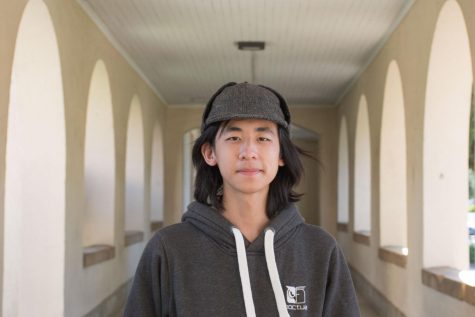
2021 - 2022 - Staff Writer
I joined C Mag because I wanted to experience the with something new and explore something that is not around my primary...


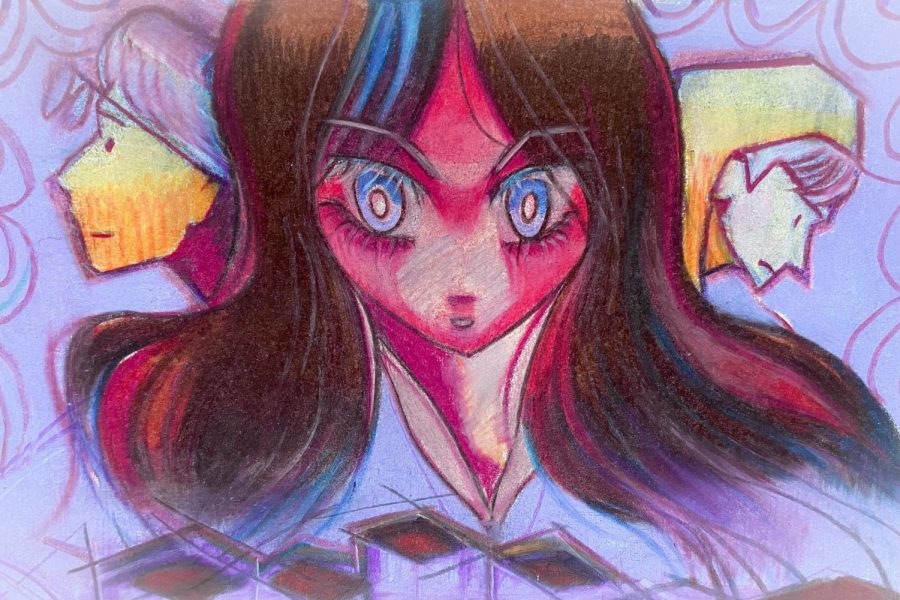

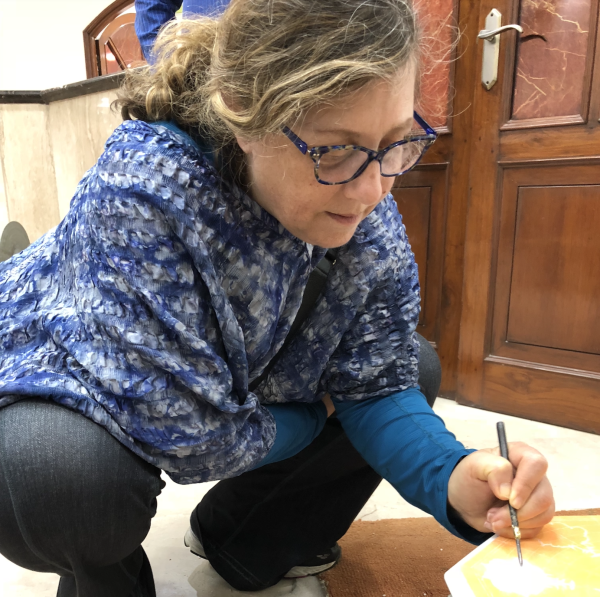
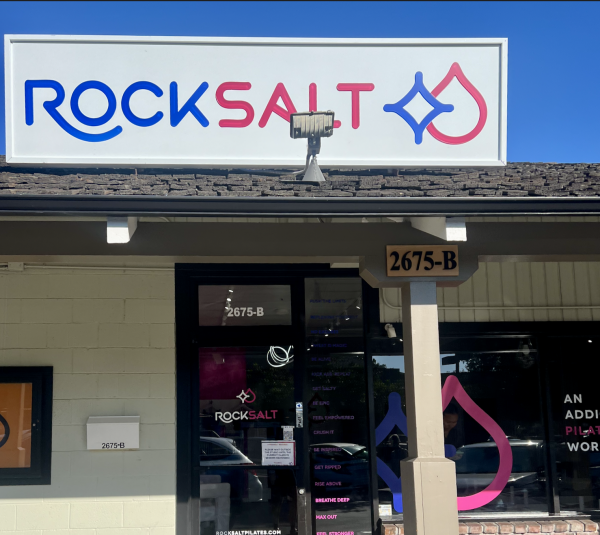
![UNSUNG HEROES — Fred Korematsu, Karen Korematsu and Aiko Herzig-Yoshinaga are awarded the Asian American Justice Medal to recognize their fight for justice following the incarceration of Japanese Americans during World War II. In addition, scientists Shuji Nakamura, David Ho, Tsoo Wang, Mani Menon and Chih-Tang “Tom” Sah receive the Asian American Pioneer Award. "[As a scientist,] it is crucially important to be able to communicate your work and your discoveries to [not only] other scientists, but also to the general public," Ho said. Photo by Talia Boneh](https://cmagazine.org/wp-content/uploads/2025/07/useee-600x400.jpg)
